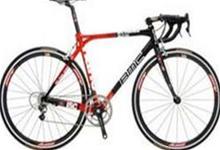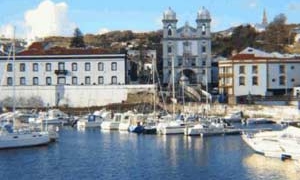If Floyd Landis wins the Tour de France, it will be a victory for nanotechnology.
 |
| Racing bicycle enhanced with carbon nanotubes (Photo: TTO) |
Landis, the captain of the Phonak racing team and a favorite in the preliminary rounds, is currently using a racing bike enhanced with carbon nanotubes.
BMC, the manufacturer of these bicycles, states that while nanotubes have previously been used in bike frames and other components to reduce weight and increase durability, the bikes used by the Phonak team feature a frame that incorporates nanotubes woven into its structure.
As a result, the frame of the BND Pro Machine SLC 01 weighs less than 1 kilogram, making it one of the lightest frames in the race, approximately 20% lighter than the BMC frames used by the team a year ago. The entire racing bike weighs about 6.7 kg.
Developed since the early 1990s, carbon nanotubes are widely regarded as a miraculous material. These nanotubes are essentially cylindrical structures made of carbon atoms arranged in a hexagonal lattice; electron microscope images reveal that these nanotubes resemble rolls of steel mesh.
This unique structure gives nanotubes extraordinary properties. They are many times stronger than steel fibers of the same size yet significantly lighter. Nanotubes can also conduct electricity, serve as insulators, and transmit light signals.
In the coming decades, nanotubes may facilitate signal transmission in chips, deliver drugs to specific cells in the human body, and even help aircraft become invisible to radar signals. However, they are currently primarily used to enhance the strength and reduce the weight of items such as automotive parts, golf clubs, tennis rackets, and various bicycle components.
The material used by BMC to manufacture the racing bike frame is produced by Easton and Zyvex and is an improved version of standard carbon fiber. Typically, a sheet of carbon fiber (composed of woven carbon strands) is coated with a layer of resin. This resin infiltrates the gaps between the carbon fibers, which is the weakest point of this material.
Easton has incorporated dispersed nanotubes (manufactured by Zyvex) into the resin to address these weaknesses. Easton has marketed bicycle parts made from these nanotube-reinforced carbon fiber sheets.
Of course, BMC’s bicycles are not cheap. The starting price for one bike is approximately $6,597, and when fully equipped with additional components, the price can soar to $8,390.

















































